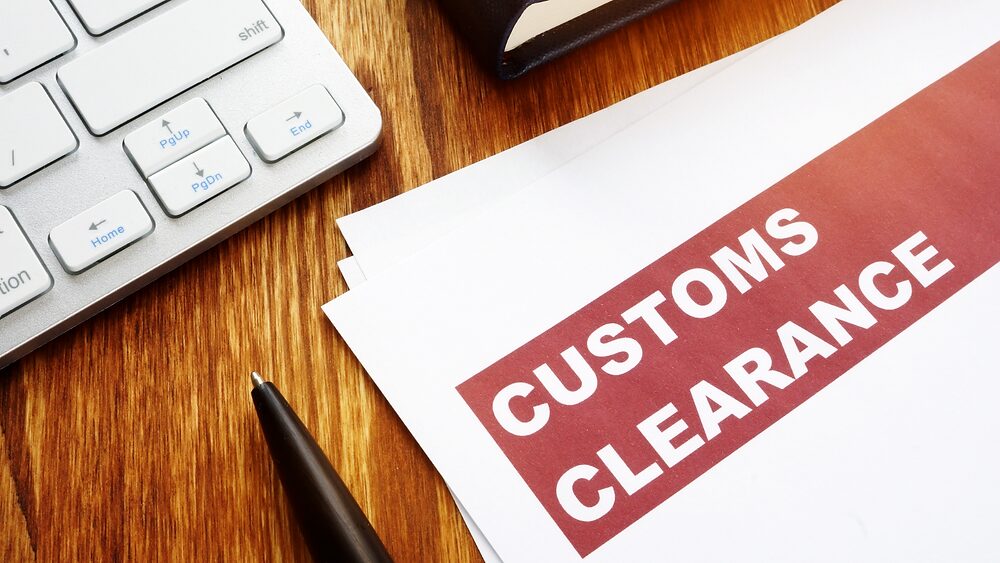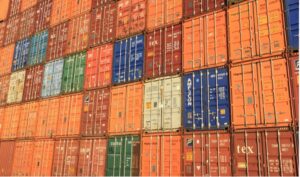For businesses venturing into international trade, navigating the complexities of shipping from China to Mauritius can feel daunting. This comprehensive guide delves into every crucial aspect of this process, empowering you to make informed decisions and ensure a smooth delivery experience.
Demystifying the Shipping Process

The journey of your goods from China to Mauritius involves several key stages:
- Quotation and Booking: Contact potential freight forwarders or shipping companies to obtain quotes tailored to your specific cargo (dimensions, weight, value). Upon choosing a provider, book your shipment and provide necessary details (incoterms, customs documentation).
- Collection and Consolidation (Optional): If utilizing a freight forwarder, arrange for your goods to be collected from various Chinese suppliers and consolidated into a single shipment for cost optimization.
- Export Clearance: The Chinese customs authorities require proper export documentation (commercial invoice, packing list, bill of lading) to clear your shipment for export.
- Ocean Freight: Your cargo embarks on its voyage to Mauritius. Select between Full Container Load (FCL) for large shipments or Less Than Container Load (LCL) for smaller consignments to share container space with other exporters.
- Import Clearance: Upon arrival at the Mauritian port, your shipment undergoes import customs clearance. Ensure all import documentation (commercial invoice, packing list, bill of lading, certificate of origin) is accurate and compliant.
- Delivery: Once cleared by customs, your goods are delivered to the designated Mauritian address.
Selecting the Optimal Shipping Method

The choice of shipping method hinges on several factors:
- Shipment Size and Urgency: For large volumes, FCL offers faster transit times and cost-efficiency. LCL is suitable for smaller consignments, but expect longer delivery windows.
- Cargo Type: Perishables or time-sensitive goods may necessitate air freight, albeit at a premium cost. General cargo can be shipped via sea freight for a more cost-effective approach.
- Budget: Air freight is generally the most expensive option, followed by FCL and then LCL.
Understanding Incoterms: Incoterms (International Commercial Terms) establish a clear division of responsibilities (costs, risks) between buyer and seller throughout the shipping journey. Common incoterms for China-Mauritius trade include CIF (Cost, Insurance, and Freight) and DDU (Delivered Duty Unpaid).
Calculating Shipping Costs: Unveiling the Price Equation
The total cost of shipping from China to Mauritius encompasses several components:
- Ocean Freight: The primary cost, determined by factors like shipment size, weight, origin/destination ports, chosen shipping method (FCL/LCL), and fuel surcharges.
- Inland Charges: Costs associated with inland transportation within China to the port of origin and within Mauritius from the port of destination to the final delivery point.
- Customs Clearance Fees: Charges levied by customs authorities in both China and Mauritius for processing import/export documentation.
- Terminal Handling Charges (THCs): Fees incurred for loading/unloading containers at ports.
- Documentation Fees: Costs associated with preparing and processing necessary shipping documents (commercial invoice, packing list, bill of lading, certificates).
- Insurance (Optional): Protects your cargo against potential damage or loss during transit.
Cost-Saving Strategies:
- Consolidate Shipments: Combine smaller consignments into LCL shipments to reduce overall costs.
- Negotiate Rates: Build strong relationships with freight forwarders to leverage volume discounts.
- Optimize Packaging: Minimize packaging weight and dimensions to reduce transportation costs.
Customs and Import Regulations: Navigating the Clearance Maze

Both Chinese and Mauritian customs regulations must be adhered to for a smooth clearance process. Here’s a breakdown of key requirements:
- Commercial Invoice: A detailed document outlining the product description, quantity, unit price, total value, and incoterms.
- Packing List: An itemized list specifying the contents of each package within the shipment, including weight and dimensions.
- Bill of Lading (BOL): A legal document issued by the carrier serving as a receipt for the cargo and a contract of carriage.
- Certificate of Origin: A document issued by a government agency or authorized body certifying the country of origin of the goods.
- Mauritian Import Permits/Licenses: Certain Mauritian imports may require specific permits or licenses. Research applicable regulations beforehand.
Tips for Expedited Customs Clearance:
- Accurate Documentation: Ensure all documentation is complete, accurate, and consistent.
- HS Codes: Classify your goods using the appropriate Harmonized System (HS) code for efficient customs processing.
Partnering with a Reliable Freight Forwarder: Your Ally in Navigation

Negotiating the complexities of international shipping can be a time-consuming and intricate endeavor. A trustworthy freight forwarder acts as your expert partner, streamlining the process and ensuring a smooth flow of goods. Here’s what to consider when selecting a freight forwarder for your China-Mauritius shipments:
Shipping from China to Mauritius
- Experience and Reputation: Prioritize freight forwarders with a proven track record of handling China-Mauritius trade lanes. Look for positive client testimonials and industry recognition.
- Service Portfolio: Evaluate the range of services offered, including cargo collection, consolidation, customs clearance expertise for both China and Mauritius, shipment tracking, and value-added services like cargo insurance.
- Competitive Rates: Obtain quotes from multiple freight forwarders to compare pricing structures and identify the most cost-effective option that aligns with your specific needs.
- Communication and Transparency: Choose a freight forwarder that prioritizes clear communication, keeping you informed throughout the shipping process and readily addressing any concerns.
- Technology Integration: Leverage a freight forwarder that utilizes online platforms for shipment tracking, real-time updates, and access to necessary documentation, ensuring transparency and efficient management of your shipment.
Tracking and Managing Your Shipment: Maintaining Visibility Throughout the Journey
Peace of mind comes with knowing the whereabouts of your cargo. Most reputable freight forwarders offer online shipment tracking tools that provide real-time updates on the progress of your shipment, from collection in China to final delivery in Mauritius. This information typically includes:
- Current location: The physical location of your container (e.g., port of origin, vessel name at sea, port of destination).
- Estimated arrival date: Anticipated date of delivery at the final destination.
- Customs clearance status: Updates on the status of your shipment’s clearance procedures in both China and Mauritius.
- Documentation access: Online access to key shipping documents like the bill of lading and commercial invoice.
Proactive Management Strategies:
- Clear Communication: Maintain open communication with your chosen freight forwarder, promptly addressing any questions or concerns that may arise.
- Contingency Planning: Discuss potential delays or disruptions with your freight forwarder beforehand and establish contingency plans to minimize their impact.
- Documentation Scrutiny: Double-check the accuracy and completeness of all shipping documents to prevent delays during customs clearance.
Dealing with Potential Challenges and Delays: Maintaining Resilience

Even with meticulous planning, unforeseen circumstances can arise during the shipping process, causing delays or disruptions. Here’s how to approach such situations:
Shipping from China to Mauritius
- Delay Identification: Promptly identify the source of the delay (e.g., customs clearance issues, bad weather, port congestion).
- Communication is Key: Maintain open communication with your freight forwarder to understand the situation and explore potential solutions.
- Contingency Plans: If you have established contingency plans with your freight forwarder, invoke them to minimize the impact of the delay.
- Transparency with Clients: If the delay affects your delivery commitments to clients, keep them informed of the situation and revised timelines.
Proactive Risk Mitigation:
- Reputable Freight Forwarder: Choosing a reliable freight forwarder with experience handling potential challenges minimizes the risk of delays.
- Insurance Coverage: Consider cargo insurance to protect your goods against potential damage, loss, or theft during transit.
- Regular Communication: Maintain regular communication with your freight forwarder to stay updated on potential disruptions and adjust plans accordingly.




